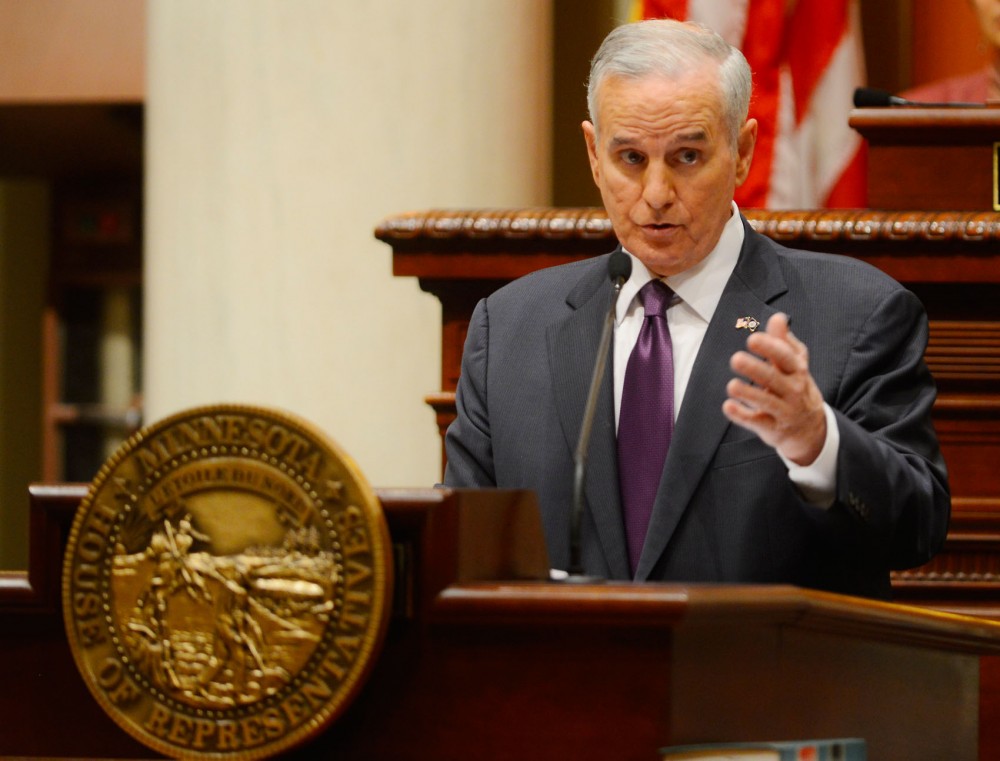The Legislature targeted tuition prices in its most recent legislation aimed at curbing college costs, but Gov. Mark Dayton said in his annual State of the State Address on Wednesday that there’s more the state can do.
“We have started to make progress, but we have quite a ways to go,” Dayton said to the crowd of about 500 packed into the House Chamber.
He said higher education institutions have increased their dependence on tuition dollars to cope with past budget cuts, which reached a three-decade low in 2012. To help with the rising prices, the Legislature approved a two-year tuition freeze for University students who pay in-state tuition and expanded the State Grant Program last year.
Minnesota colleges and universities have the 12th-highest in-state tuition and fees among four-year colleges and universities, according to the College Board.
“One result from that declining state funding had been the increased reliance on tuition revenues to fund our public colleges and universities,” Dayton said.
More than 84 percent of University undergraduates felt the effects of the tuition freeze, but prices for non-resident and
graduate students increased. University administrators have said hikes could reach the undergraduates who pay in-state tuition once the freeze dissolves in 2015.
In the last budget cycle, the governor cut the state’s higher education spending by more than $360 million — which resulted in the lowest amount of higher education spending in nearly three decades. The state faced a budget deficit, and spending was cut on many levels.
But last legislative session, Dayton reversed the trend by approving a nearly $250 million increase — which provided relief for the freeze, grant expansion and the Minnesota State Colleges and Universities system — for the current biennium.
Sen. Terri Bonoff, DFL-Minnetonka, said high student debt levels are a significant issue for Minnesota students — something Dayton didn’t address directly.
“He didn’t tackle in this speech the overwhelming burden of debt,” she said.
Hamline University law professor David Schultz agreed and said the governor didn’t propose anything new to make up for the state’s lack of higher education spending in the past.
“He offered nothing in terms of relieving college students or their parents of high loan debt,” he said.
Rep. Jeff Howe, R-Rockville, also voiced skepticism, saying Dayton’s speech didn’t offer suggestions to revamp the state’s higher education costs.
“He talked about streamlining education but didn’t give us any hint on how he would like to do that,” he said.
Besides noting higher education spending, Dayton highlighted his bonding bill, the state’s job creation measures and changes in the state’s K-12 education system. He also mentioned the Legislature’s decision to legalize gay marriage and raise the minimum wage — remarks that drew audience applause.








